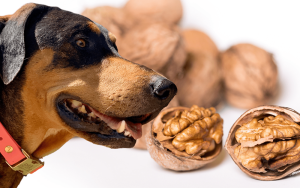Can Cats Eat Cheese? Exploring the Truth Behind Dairy and Your Feline Friend

Introduction: Can Cats Eat Cheese?
As a cat owner, it’s natural to wonder whether the food you enjoy is safe for your pet. One common question among cat lovers is whether cats can eat cheese. Many people associate cats with dairy products due to popular images of felines enjoying a creamy
treat. However, when it comes to feeding cheese to your cat, the truth may not be as simple as it seems.
In this comprehensive article, we will explore the potential benefits and risks of giving your cat cheese, dive into the effects of dairy on feline digestion, and provide expert advice on what types of foods are best for your cat’s health. By the end
of this guide, you will have a clear understanding of whether cheese is a suitable snack for your furry companion or if it’s best to avoid it altogether.
Is Cheese Safe for Cats?
Cheese may seem harmless to many pet owners, and while it is not toxic to cats, it can cause issues depending on your cat’s individual health and tolerance. Let’s break down the factors that determine whether cheese is safe for your cat:
-
Lactose Intolerance in CatsMost adult cats are lactose intolerant, which means they lack the enzyme needed to properly digest lactose, the sugar found in milk and other dairy products. Lactose intolerance occurs because most cats
stop producing lactase—the enzyme required for breaking down lactose—once they are weaned from their mother’s milk.When a lactose-intolerant cat consumes cheese, the lactose remains undigested and can ferment in the digestive system, leading to unpleasant side effects such as:
- Diarrhea
- Stomach cramps
- Gas and bloating
- Vomiting
The severity of these symptoms depends on the amount of lactose the cat consumes and their individual tolerance. While some cats can tolerate small amounts of cheese, others may experience adverse reactions even with the smallest bite.
-
Cheese and Fat ContentAnother important factor to consider is the fat content in cheese. Cheese is generally high in fat, which can lead to weight gain and other health problems in cats if fed in large quantities. Obesity is a
serious issue in cats, and feeding them high-fat foods like cheese regularly could contribute to this problem. Additionally, excessive fat intake can lead to gastrointestinal upset and pancreatitis in cats. -
Nutritional Value of Cheese for CatsWhile cheese does contain protein and calcium, these nutrients are not necessarily the best or most beneficial sources for your cat. Cats are obligate carnivores, meaning their bodies are designed
to thrive on animal-based proteins and fats, not dairy products. In fact, cats have a limited ability to process nutrients from dairy, so relying on cheese for any nutritional benefit is not advisable.
How Does Cheese Affect Cats’ Digestion?
Cats’ digestive systems are not designed to break down dairy products. Unlike humans, who produce the enzyme lactase to digest lactose, most cats stop producing it as they age. This inability to digest lactose properly can result in digestive upset. When
a cat eats cheese, the lactose in the dairy can cause:
- Diarrhea: Undigested lactose can cause a quick passage of stools, leading to diarrhea.
- Gas: The fermentation of lactose in the intestines can lead to gas buildup, causing bloating and discomfort.
- Stomach pain: Lactose intolerance can also cause cramps and general stomach discomfort.
- Vomiting: In some cases, the digestive upset caused by cheese can lead to vomiting.
If your cat shows any of these symptoms after eating cheese, it’s a sign that dairy is not a suitable treat for them, and you should avoid giving it to them in the future.
Signs Your Cat Might Be Lactose Intolerant
While many cats are lactose intolerant, some can tolerate small amounts of dairy without noticeable issues. However, if you notice any of the following symptoms after feeding your cat cheese or other dairy products, your cat is likely lactose intolerant:
- Loose stools or diarrhea: This is one of the most common signs that your cat is lactose intolerant.
- Excessive gas or bloating: Cats may experience increased gas or bloating after consuming dairy.
- Vomiting: Some cats will vomit shortly after eating dairy if they cannot digest it properly.
- Lethargy or discomfort: Cats that experience stomach cramps from lactose intolerance may become lethargic or show signs of discomfort.
If any of these symptoms persist, it’s best to consult with your veterinarian to ensure your cat’s health is not being compromised by consuming dairy.
Can Cheese Be Given as an Occasional Treat?
In moderation, and depending on the individual cat’s tolerance, cheese can be given as an occasional treat. However, it is important to keep in mind that cheese should never replace a balanced, meat-based diet. If you choose to give your cat a small amount
of cheese, opt for varieties that are lower in lactose, such as aged cheeses like cheddar or Swiss. These cheeses typically contain less lactose than softer varieties like mozzarella or cream cheese.
If your cat does not exhibit any signs of discomfort after eating a small portion of cheese, you can continue to offer it as an occasional snack. However, it should never be a regular part of your cat’s diet, as it does not provide any essential nutrients
for felines, and its high fat content may contribute to obesity.
Healthier Alternatives to Cheese for Cats
If you’re looking for a safe and healthy treat for your cat, there are plenty of options that are more suitable for their nutritional needs. Here are some cat-friendly treats that can be offered instead of cheese:
-
Lean MeatCats are obligate carnivores, meaning they require a meat-based diet to thrive. Offering small pieces of cooked chicken, turkey, or fish as a treat is a great way to provide a protein-rich snack that your cat will enjoy.
-
CatnipMany cats love catnip, which is a safe and natural treat that can provide entertainment and mental stimulation. If your cat enjoys catnip, it can be a fun and healthy alternative to cheese.
-
Commercial Cat TreatsThere are many commercially available cat treats that are specifically formulated to meet the nutritional needs of cats. These treats often contain a balance of protein, fat, and other nutrients, making them
a safer option than dairy products. -
Cat-Safe VegetablesWhile cats are obligate carnivores, some may enjoy the occasional vegetable treat. Cooked carrots, peas, or pumpkin can provide some fiber and vitamins. However, these should only be given in moderation and
should never replace a balanced, meat-based diet. -
Bone BrothA homemade or store-bought bone broth (without added onions, garlic, or spices) can be a hydrating and nutritious treat for your cat. It’s an excellent way to add some variety to their diet.
Final Thoughts: Should Cats Eat Cheese?
While cheese is not toxic to cats, it is not an ideal treat for them. Most cats are lactose intolerant, and consuming cheese can lead to digestive upset, including diarrhea, vomiting, and gas. Additionally, the high fat content in cheese can contribute
to obesity and other health problems if fed in large amounts.
If you do choose to give your cat cheese as an occasional treat, opt for low-lactose varieties and monitor your cat for any signs of digestive discomfort. However, there are many healthier alternatives to cheese that are better suited to your cat’s dietary
needs.
Always consult with your veterinarian before introducing new foods to your cat’s diet to ensure that you are making the best choices for their health and well-being.
FAQs:
-
Can kittens eat cheese?Kittens are often more tolerant of lactose than adult cats, but this tolerance decreases as they grow. It’s best to avoid giving kittens cheese to prevent any potential digestive issues.
-
What are the symptoms of lactose intolerance in cats?Symptoms include diarrhea, vomiting, bloating, and gas. If your cat experiences these after consuming dairy, they are likely lactose intolerant.
-
Can I give my cat cheese every day?No, cheese should not be given to cats every day due to the potential for digestive upset and weight gain. It should only be offered as an occasional treat.
-
What are some safe alternatives to cheese for cats?Safe alternatives include lean meats, catnip, commercial cat treats, and cat-safe vegetables. Always ensure the treats are appropriate for your cat’s health needs.
Conclusion
In conclusion, while the idea of cats eating cheese may be an entertaining image, it’s essential to recognize the potential risks involved. Lactose intolerance, digestive issues, and weight gain are all concerns that should discourage regular cheese consumption
for your cat. Instead, offer them safe, protein-rich treats designed for their dietary needs, and always prioritize their long-term health.






